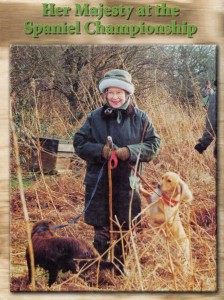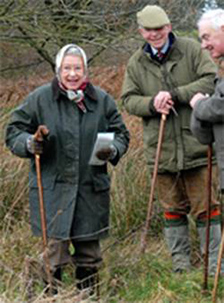The Importance of Training With Other People
I am unsure if it is just human nature or a precedence that society has imposed upon us, but as a general rule the majority of us like to try and accomplish things on our own. Myself, I am just as guilty as the next person, call it a matter of pride, or as my wife calls it – stubbornness! No matter what you may call it, there isn’t any better feeling then starting a tough project and accomplishing the end result without assistance from anyone else.
When I started training a little over two and half years ago I had a large degree of this pride-(stubbornness) and I was personally going to train my dog to be one of the best bird dogs in the country. Mind you I had never trained a dog before. Yes I had assisted my father working his Springers to quarter and flush, but we never cared about them being steady, hell, I didn’t even know there was such a thing as steady. Not knowing any better in my mind, all I had to do was have a dog that could sniff out a bird, flush it up into the air, I would shoot it (at least attempt to anyway), and the dog would bring it back to me. Sounds pretty simple, right?
It was now December of 2003 and Remington (ACS) was a little over 4 months old. We had been playing fetch with a tennis ball doused with quail scent; I had shot the blank pistol around him. I was smart enough not to just fire off a shotgun over him. Remington knew how to sit, he frequently came to me blowing on a whistle, and he quartered to a certain degree. My dog was ready; we were going grouse hunting and I was all set to limit out. Boy, was I wrong in my thinking. In my excitement about hunting my dog I had forgotten some key items: Remington had never seen a bird in the wild, and he had never really been in the woods. Up until this point all of the training was done strictly on the back lawn and the woods were entirely too exciting for me to keep control over him. That was the end of my bird hunting with my new dog for that year.
As the end of February 04 rolled around a better portion of the snow was gone and I was able to purchase a handful of bobwhites. I loaded up Remington and we headed for a State managed area in the mid – coast region. I left Remington in the truck and headed out into the field with the box of birds. I had been told by some people that in order to plant a bird that you spun them round and round and laid them into an area that had standing brush, so that’s what I did. I then raced back to the truck for my shotgun and most importantly, Remington. We headed down into the field and I started him quartering, which looking back in time is the one thing he has always had a natural ability at doing. Again, not knowing any better, we started into the field with the wind at our backs so it took Remington longer to pick up the scent. Once picking it up, he kind of paced around and then came upon the placement point. I will never forget the look on his face when he saw the bird. It was a look of both startled and extreme excitement. He lunged in as if to flush the bird, but instead he caught the little bugger. I learned two very important lessons out of this; one is that I spun the bird way too much, and two that I needed to work a lot more on the retrieve with Remington. He had no problem holding the bird but I was not going to make a habit of chasing him all around hells creation trying to take it from him.
After the hunting episode and now this, I was extremely disappointed, not in Remington but in myself. At this point I was fully aware of not how much I knew about dog training, but instead, how little that I knew – I needed help. In March of every year the State of Maine holds their Sportsman Show at the Civic Center in Augusta and I could only hope that I could find some help there.
The Saturday of the show came and my wife and I jumped in the vehicle and headed for Augusta. When we arrived the place was packed with people so we slowly started going from booth to booth. We passed Ducks Unlimited, the Sportsman Alliance of Maine, a few others and then N.A.V.D.A. I was in heaven. They had training equipment all over their table, they had dogs, and they were dressed like true dog professionals with shooting shirts, brush pants and whistles. Well, have you ever heard the expression that looks can be deceiving? That was exactly the situation in this case. Don’t get me wrong, the people of N.A.V.D.A. handle their dogs unbelievably, but as soon as I told them that I had an American Cocker they wanted absolutely nothing to do with me. The exact words as I remember were, “That’s not a versatile dog”. I have learned much different over time! At this point I was disappointed again.
My wife and I continued to walk around and decided to check out some of the seminars that were being held upstairs. We were walking down the corridor and I viewed a sign that said “The Maine Spaniel Field Trial Club”, I again said to myself, “This may be just what I am looking for.” We went inside the room and sat down. The seminar or exhibition was being conducted by Barbara and Cary Haupt of Tenants Harbor. They had a slideshow highlighting their English Cocker Spaniels which Barbara commentated, and Cary followed the slideshow by demonstrating some of the training that they do with their dogs. I was thoroughly impressed! After they were done and people were starting to leave, I went up and introduced myself to the Haupts and explained to them my dilemma. They suggested to me to join the club, informing me it was a state wide club of members who wanted to better the training and performance of the spaniel breed. I was sold and asked, “Well how do I join?” They said we have a booth right down stairs and to fill out a membership form and pay your dues. In the madness of all the people downstairs I must have walked right passed the booth.
A month or so later was the first scheduled training session at the most prominent meeting place for the club, Three Rivers Wing Shooting in Milo, Me. I went with a huge degree of excitement and also butterflies in my stomach wondering if I would look like a fool with my untrained spaniel. I pulled in about 7:30am and there must have already been a dozen other vehicles in the drive, and that many people or more standing around in blaze orange hats or shooting vests. When I got out I started to walk towards the crowd. Over came Cary Haupt to greet me and make sure that I was introduced to all of the members. After introductions were taken care of for me and a couple of other new members, we proceeded out into the field. We broke up into two different groups, those with the more experience dogs, and those of us with the less experienced and puppies. I cannot speak for the other group for I wasn’t involved with what they were doing, but in my group we had a gunner on either side of the handler, each with a bumper and a blank pistol. The handler then placed a check cord on their dog, made the dog HUP (sit and stay in spaniel terms) and cast the dog towards one of the gunners. After casting towards one gunner and then the other, one would toss a bumper and fire the blank pistol, the dog chased down the bumper for the retrieve. Then the gunners had a different job. Even though the pup had a check cord, the gunners would make sure they kept the dog in between them and the handler. The handler held his/her ground, using the check cord if necessary, and the gunners would force the pup into the handler reinforcing the need to return to the handler – a dog version of “good cop/bad cop”. This is not something I could do on my own.
Then we helped with the dogs that were a little more advanced, the ones that had been conditioned to HUP when a bumper was thrown. They remained at HUP when the blank pistol was fired, and retrieved when sent on their name. This allowed for everyone to experience a different role in the training and to see what was going on from different perspectives. I feel that this is a very important measure in conditioning the person for being a better handler. By seeing training from different perspectives, it allows the person to take concepts and ideas from different handlers and incorporate them into their own training style. When you train on your own you lose out on the many advantages that you gain by training with a group of people. When you train with a group, there is usually an array of experience among the handlers. Opportunities such as this allow for the more experienced trainers to give tips to the less experienced so that repeat mistakes aren’t made.
Training with other handlers is important; it will allow you to do so much more with your dog, such as playing other versions of good cop, bad cop. When your dog does something wrong such as breaking, everyone can come down on him. If the dog is closer to the gunner, the gunner can stop the dog, raise their voice, and make the correction. He’s the bad guy, not you. Training with others will also allow you to practice bracing (running two dogs at once) if you plan to trial your dog. Another advantage in training with others is someone else can plant birds for you while you keep your dog in the distance not allowing them to see placement points. Your dog also won’t follow your scent to the birds. As you can see, there is an array of reasons to train with other people. That’s not to say some training shouldn’t be done by yourself, but with someone else the options are endless.
In the past year I have been fortunate enough to train most weekends with a group – 5 or 6 people – with everything from inexperienced puppies to older, highly trained dogs. Even though none in the group are professionals, the expertise has allowed me to bring my dogs to a level I wouldn’t have been able to accomplish on my own or even have thought possible. I am now a firm believer in training with other people. The result? My cocker, Remington, is confident in the field, and knows what is expected of him. He hunts (all of the time), he finds birds (when they are there), he sits on the flush and the shot (most of the time), he marks the bird’s fall (all of the time), and makes the retrieve (most of the way.). Yes, we’re still training with the group, and my new springer pup, Gauge, is now part of it.
Shane D Plummer
P. O. Box 16
Woolwich, Me. 04579
spbirddog@hotmail.com



